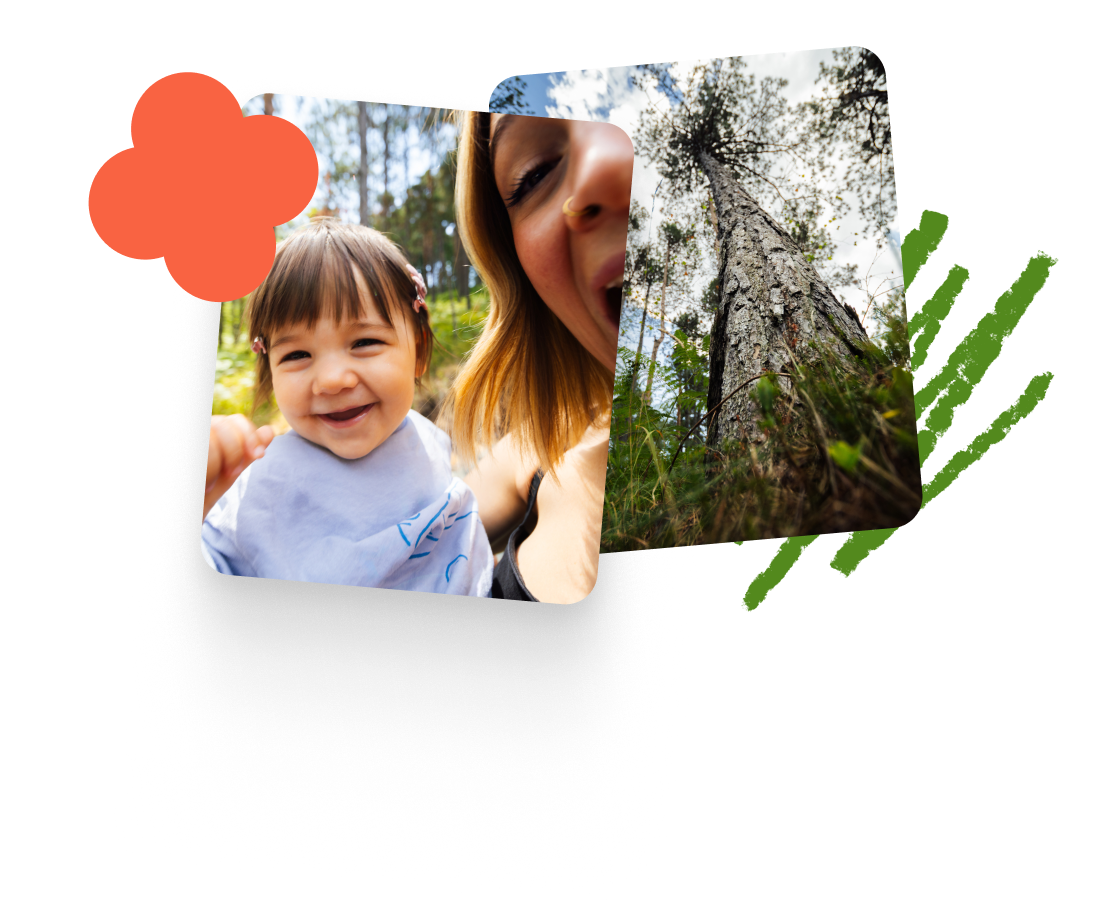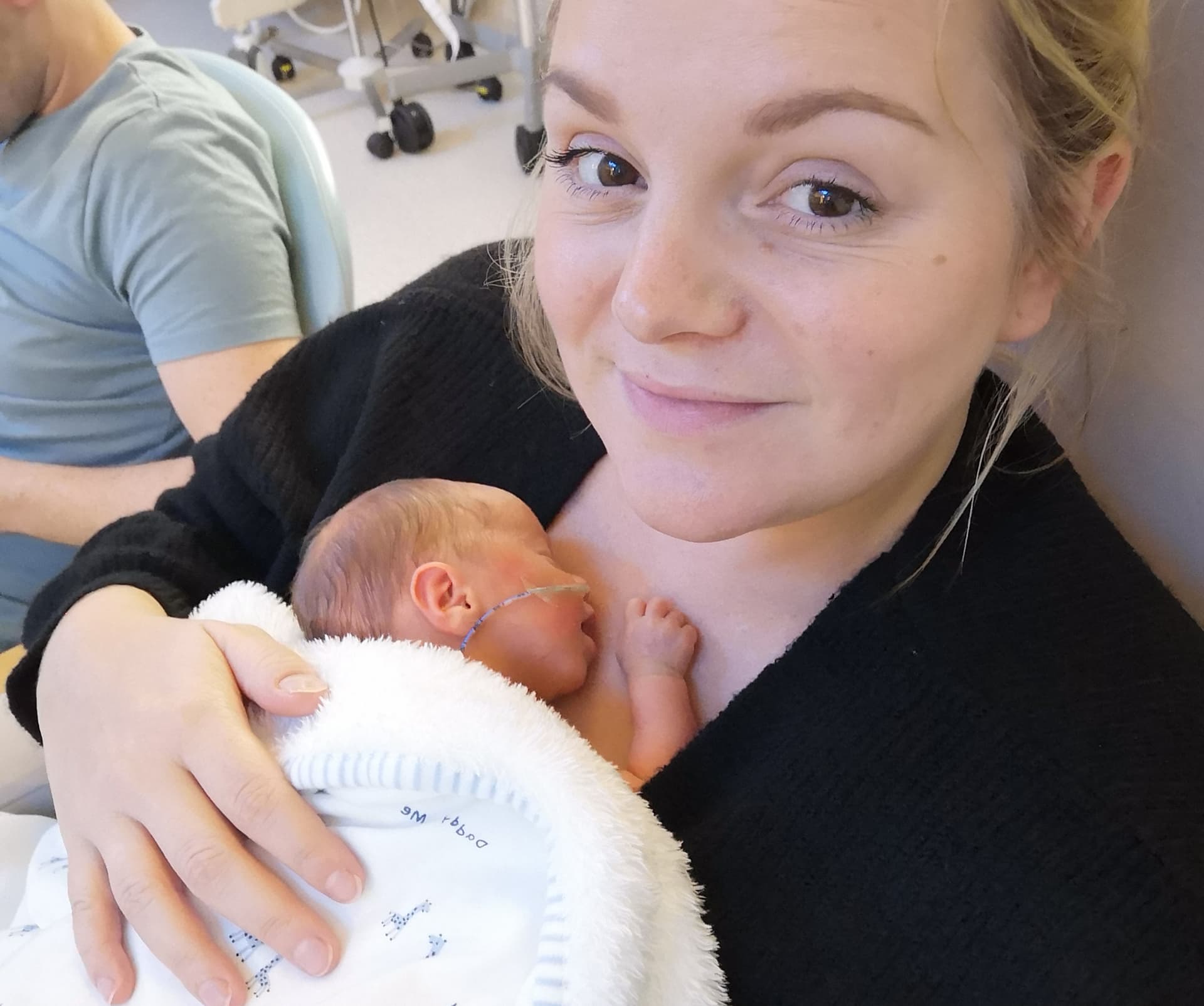
is now part of
Joy Parenting Club!
Families and care organisations using Heba will now have the option to also join Joy. For any questions, reach out to us at hello@heba.care

Families and care organisations using Heba will now have the option to also join Joy. For any questions, reach out to us at hello@heba.care

September 22, 2024
During NICU Awareness Month, the co-founder of Miracle Moon explains why we need to elevate perspectives of families who’ve been in neonatal care – now and always.
Across the UK about 90,000 – or one in seven – babies born each year are cared for in neonatal intensive care units (NICUs). September is NICU Awareness Month, a time to recognise the collective experiences of the families in this cohort. And as clinical psychologist Dr Frankie Harrison points out, these experiences extend far beyond hospital walls.
As the co-founder of online community, Miracle Moon, Frankie supports parents who, like her, have spent time with their children in NICUs. Here, she reflects on the challenges, camaraderie and fierce compassion felt by this community.
This NICU Awareness Month, what would you like people to be more aware of?
That it doesn’t end at discharge. It doesn’t end when you’re home. So many people think and say, “but you’re home now” or “you’re okay” or “it’s behind you” or whatever it is. But a brain that has been traumatised – and I’m not using that word lightly, up to 70 percent of people experience post-traumatic stress disorder (PTSD) after neonatal care – a traumatised brain is still operating in a state where the threat feels current.
Even years later, for a lot of NICU families that stay in the medical world, it is still a current threat. It’s still something that is still very much ongoing, still threatening, still worrying. And so people saying “that was in the past” or any kind of minimising, invalidating, “at least” type comments generally aren’t helpful.
It’s important to have supportive people around you who understand that this is an ongoing thing.
Your online community, Miracle Moon, provides this kind of understanding and support through resources, therapy and connection for NICU families. Why did you feel compelled to create this platform?
I had a fairly turbulent pregnancy in 2019 which ended in me developing pre-eclampsia and having my son by emergency section at 31 weeks. We were thrown into neonatal care and at that point, I had no clue about it. I didn't know what it was, I didn’t know what to expect – it all felt incredibly uncertain.
While we were in the NICU I went into a freeze mode. I didn’t have a big, emotional reaction of anything – I was just on autopilot. It felt like I was swimming through water. It wasn't until I got home that I was like, what have I just been through? That was when I started to try and find people who were talking about their NICU experience online.
I really struggled to find that kind of community space, so me and Georgie Robinson, a fellow NICU mum I’d met online, decided that we'd start one on Instagram. And over the past four years, it’s grown and grown and grown.

In what ways is Miracle Moon currently supporting the NICU community?
So that we can reach as many people as possible, we offer free content through our social media accounts and our podcast, where Georgie and I chat and interview professionals or people who have been through the NICU experience.
We've recently launched The NICU Space, which is our membership community. Within this we’ve got information that takes you through the whole experience of being in NICU now, all the way to months and years afterwards. Members get access to community chats and specialists who are in the space and we do live events and therapy groups.
I also offer one-to-one therapy support, where the majority of the work I do with people is Eye Movement Desensitisation and Reprocessing (EMDR). This helps parents to process and make sense of their experiences – especially if they’ve developed PTSD or they’ve gone through birth trauma or other traumatic experiences.
You know when you think back to an experience and it feels like you just get kicked in the gut every single time? It doesn’t take away the experience, but it takes away that kick.
Many NICU families do, as you say, grapple with traumatic experiences. Do you see post-traumatic growth – like new-found strength and resilience – happening because of this?
The word that comes to mind is fierce compassion. You are less likely to take other people’s crap and more likely to have a clearer perspective of what is important. Then there’s the compassion side of it, which I’ve seen in our community. That caring, that empathy – that deep understanding for what it is that people have been through and the ability to support each other is huge.
When we first started Miracle Moon, it used to be that it was me responding to people in our chats and on our social accounts, with things like, “how you're feeling is completely normal, it’s valid, I felt like that too”. But now we have an army of other parents supporting each other with those same kind words, which I just love.
What message do you have for NICU families – especially during NICU Awareness Month?
Sometimes these months can feel really difficult for people who have been through it and it’s okay to share as much or as little as you want to. The most important person this month is you. We know that the NICU experience isn't just about one month for people who are going through it, so please just prioritise yourself.
Read more from Dr Frankie in her article for Heba, Coping with repeated hospital stays: a guide for parents. Find NICU family support and community via the Miracle Moon website, podcast and Instagram account.